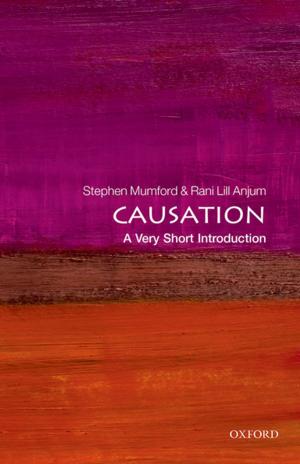Oxford Studies in Agency and Responsibility Volume 4
Nonfiction, Religion & Spirituality, Philosophy, Ethics & Moral Philosophy, Reference & Language, Law| Author: | ISBN: | 9780192528100 | |
| Publisher: | OUP Oxford | Publication: | July 25, 2017 |
| Imprint: | OUP Oxford | Language: | English |
| Author: | |
| ISBN: | 9780192528100 |
| Publisher: | OUP Oxford |
| Publication: | July 25, 2017 |
| Imprint: | OUP Oxford |
| Language: | English |
Oxford Studies in Agency and Responsibility is a series of volumes presenting outstanding new work on a set of connected themes, investigating such questions as: · What does it mean to be an agent? · What is the nature of moral responsibility? Of criminal responsibility? What is the relation between moral and criminal responsibility (if any)? · What is the relation between responsibility and the metaphysical issues of determinism and free will? · What do various psychological disorders tell us about agency and responsibility? · How do moral agents develop? How does this developmental story bear on questions about the nature of moral judgment and responsibility? · What do the results from neuroscience imply (if anything) for our questions about agency and responsibility? OSAR thus straddles the areas of moral philosophy and philosophy of action, but also draws from a diverse range of cross-disciplinary sources, including moral psychology, psychology proper (including experimental and developmental), philosophy of psychology, philosophy of law, legal theory, metaphysics, neuroscience, neuroethics, political philosophy, and more. It is unified by its focus on who we are as deliberators and (inter)actors, embodied practical agents negotiating (sometimes unsuccessfully) a world of moral and legal norms.
Oxford Studies in Agency and Responsibility is a series of volumes presenting outstanding new work on a set of connected themes, investigating such questions as: · What does it mean to be an agent? · What is the nature of moral responsibility? Of criminal responsibility? What is the relation between moral and criminal responsibility (if any)? · What is the relation between responsibility and the metaphysical issues of determinism and free will? · What do various psychological disorders tell us about agency and responsibility? · How do moral agents develop? How does this developmental story bear on questions about the nature of moral judgment and responsibility? · What do the results from neuroscience imply (if anything) for our questions about agency and responsibility? OSAR thus straddles the areas of moral philosophy and philosophy of action, but also draws from a diverse range of cross-disciplinary sources, including moral psychology, psychology proper (including experimental and developmental), philosophy of psychology, philosophy of law, legal theory, metaphysics, neuroscience, neuroethics, political philosophy, and more. It is unified by its focus on who we are as deliberators and (inter)actors, embodied practical agents negotiating (sometimes unsuccessfully) a world of moral and legal norms.















